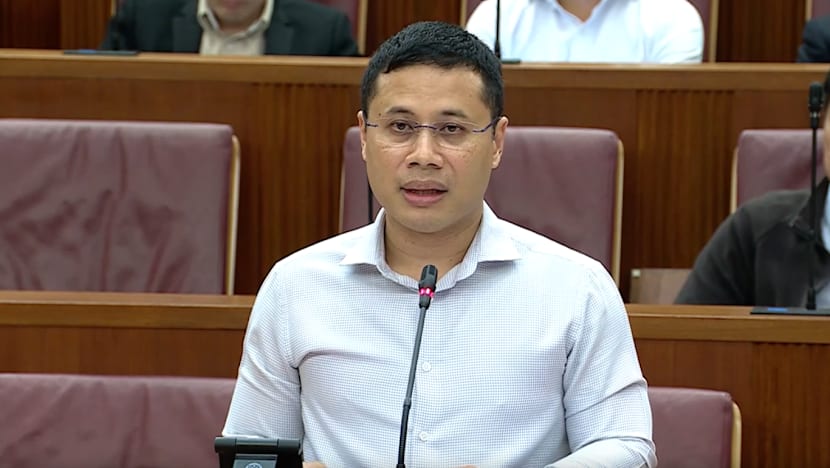Singapore must break away from seeing education as 'arms race', says Desmond Lee
"Grades might still get you through the door, but how you are as a person determines how you do," says the education minister.

Education Minister Desmond Lee speaking in parliament on Sep 25, 2025.

This audio is generated by an AI tool.
SINGAPORE: Singapore must do more to break away from seeing education as an "arms race", Education Minister Desmond Lee said in parliament on Thursday (Sep 25).
The Ministry of Education (MOE) will therefore take steps to study how to reduce the stakes in exams, focus on non-academic aspects of the school experience, and guard against "hothousing" by families with more resources.
MOE will look at ways to refresh the education system in line with the spirit of the government's Forward Singapore agenda, said the minister.
"Exams like the (Primary School Leaving Examination) should not remain a high-stakes checkpoint for students that is viewed as a determining factor for the trajectory of the rest of their lives," said Mr Lee.
"Instead, we will focus on the more important aspects of our children's experiences in school – developing life skills, interpersonal relationships, good character and values, and more."
"In the working world, we all know that grades might still get you through the door, but how you are as a person determines how you do," he added.
MOE will therefore increase its emphasis on character and citizenship education and co-curricular activities, which are "just as important, if not more important, than academic grades".
"We must also guard against the opportunity gap in our education system, where families with more resources hothouse their children to give them a leg up in school, while children from lower-income families face an uphill battle," said Mr Lee.
MOE will provide better support to lower-income students by enhancing resources for schools and deepening partnerships with parents and the community.
Children must also have the opportunity to interact with peers from different backgrounds from a young age, to prevent divisions along lines like race, religion or socioeconomic status, he said.
MOE will therefore continue to enable students from different backgrounds to learn together and from one another, so that schools and classrooms are a reflection of society.
Schools will also change the way students are taught and learn to prepare them for a world transformed by artificial intelligence (AI), and equip them with critical skills so that they can create value leveraging on AI.
"These are not easy changes, and they will take time to implement. Some of them may require us to fundamentally rethink some of our approaches to assessments, curriculum, learning and how we organise our education system.
"But they are necessary in the long term," said Mr Lee, who was speaking during a parliamentary debate on the President's Address.
Earlier in the week, Prime Minister Lawrence Wong also spoke about the government doing more to reduce the stakes of single exams and broaden definitions of success.
Mr Lee said that while society does want to strive for excellence, an overemphasis on academic grades can create unhealthy levels of competition and stress.
This is as opposed to "fostering a true love of learning or focusing on the things that matter".
He said the education system must provide pathways for children to flourish no matter their starting point, support them to pursue their aspirations "in their own time" and cultivate strong values so they give back to society.
This shift away from grades and paper qualifications is a multi-year effort, he said, noting changes that have already been made.
These include doing away with exams in Primary 1 and Primary 2 and introducing full subject-based banding in secondary schools.
SOCIAL SUPPORT
Mr Lee, who is also Minister-in-charge of Social Services Integration, also spoke about the ComLink+ and KidSTART programmes to support low-income families and their children.
ComLink+ currently supports around 10,000 low-income families with children, and the government will progressively expand this, he said.
The government will also provide more comprehensive support to uplift families going forward.
"We have partnered (the Housing and Development Board) to help families work towards home ownership," said Mr Lee.
"We will support our children across educational stages, including improving preschool enrolment and attendance, and ensuring a healthy home environment.
"We will also provide dedicated employment and skills assistance that better meets the needs of families."



















